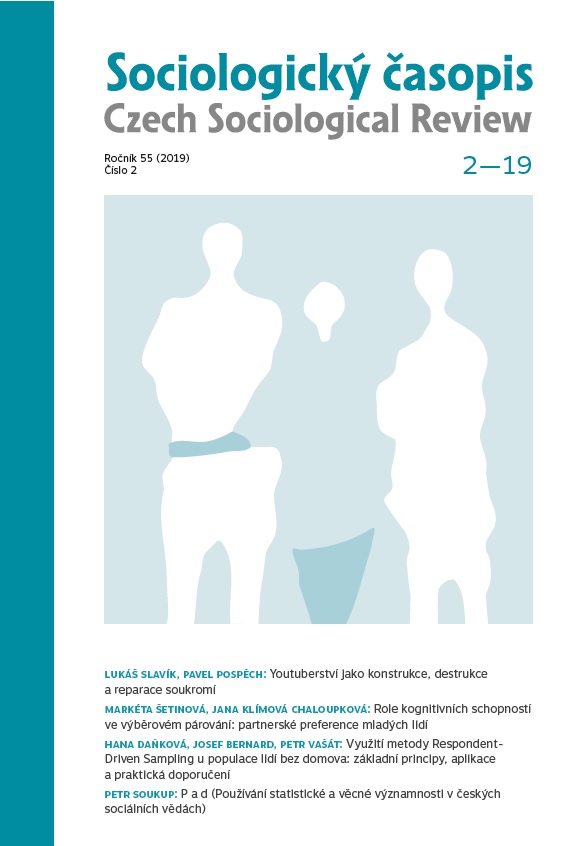Role kognitivních schopností ve výběrovém párování: partnerské preference mladých lidí
The Role of Cognitive Abilities in Assortative Mating: Partner Preferences of Young Adults
Author(s): Markéta Šetinová, Jana Klímová ChaloupkováSubject(s): Education, Sociology, Social Norms / Social Control, Identity of Collectives
Published by: AV ČR - Akademie věd České republiky - Sociologický ústav
Keywords: partner preferences; cognitive abilities; education; educational homogamy; intelligence
Summary/Abstract: This article focuses on the relationship between young adults’ cognitive abilities and individual partner preferences. We worked with the Preference NSZ 2017 data set, which contains data on partner preferences and the results of the National Comparative Secondary-School Exams of Czech high school graduates, and our analyses, using logistic regression, confirmed a tendency towards homophily on the level of cognitive abilities and university education. Young people with above-average results place more importance on agreement in political opinions, but do not regard the partner’s homemaking abilities or financial situation as too important. The results further show that partner preferences differ according to the education capital of the background family and according to preferred partnership arrangement. We also find significant differences in the partner preferences of men and women that reflect ideas about traditional gender roles. Women favour characteristics that relate to status, and men assign more importance to physical looks.
Journal: Sociologický časopis / Czech Sociological Review
- Issue Year: 55/2019
- Issue No: 2
- Page Range: 161-187
- Page Count: 27
- Language: Czech

